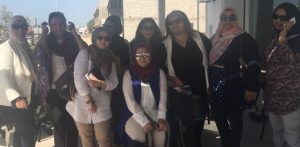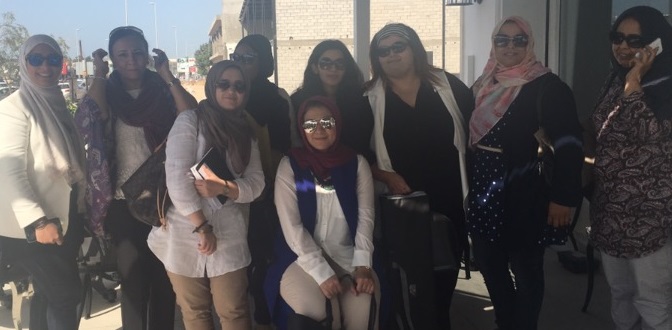By Ekram El-Huni and Hala Bugaighis

Tripoli, 4 July 2016:
As the world news continued to flow through social media of Brexit (the UK’s vote to exit the EU), Euro 2016, and a whole host of regional and global developments, we Libyans continuously search for ways not to be forgotten or at least viewed simply as the next failed Arab state with three simultaneous governments.
Hisham Matar, gives us a taste of recognition, as he calmly and quietly publishes his latest book throughout the world. A prominent Libyan author who writes in the English language, Matar’s first book – In the Country of Men – was shortlisted for the Man Booker award in 2006.
Hisham’s books throw us Libyans into the past but they really only do so to help us navigate our pain and understanding of the present. Many people ask Libyans about their current struggles and what we really should tell them is to read this excerpt from Matar’s new book, The Return, to begin understanding. Then you may get a glimpse of the 40-year trauma that was Libya under Gaddafi.
The older generation experienced these events directly with families torn apart by systemic degradation. The younger generation watched helplessly as their parents attempted to protect them by instilling in them an absolute and paralyzing fear that prevented any hope or aspiration for over 40 years.
What you are looking at in Libya during 2016 is an open, festering wound that is not being properly treated. And Matar, along with his father, his mother, and his family, represent us in that they are the epitome of an experience that tore at our very essence.
Experiences from the past 43 years of torture in Libya have created a generation, with a part of it that tears at itself through the violence that we witness within the country these days and another part of it – with underlying strength from women as a core and healing part of the population – that wants to cradle this broken Libya in its arms and make it all better.
Yet in the midst of all of this, many Libyan women are challenged for how to treat their wounded nation. Day by day, Libyan women are losing. There is no space for them in the public arena along with increasing limitations in their political, economic and social contributions to the country. There are a multitude of issues that Libya is facing and for women, the problems are compounded with them facing a high rate of unemployment and increasing social exclusion.
Although women are often considered more vulnerable in times of conflict, still Libyan women have proven themselves to be strong and remarkably resourceful at coping with difficult times. There have been some positive developments, like the rapid spread of entrepreneurship and startups among Libyan women since 2011. Libyan women are realising that public employment is not their only main source of income and by adopting a new business model they can contribute to re-building a state.
And this is where we in Jusoor fit in. We would like to help in the healing of Libya as a united country. We know we will not be able to ‘do it all’ and fully address the trauma. But we found a space in the civil society movement, which is very much needed at this time. We need this space to breathe and make sure that we can at least try to thrive. A belief in a new, unified and evolving Libya remains in us all.
So at Jusoor, we believe Libyan women are a powerful force for change and key to successfully achieving economic growth. Therefore, one of our main goals is to promote entrepreneurship and social innovation for Libyan women since they will be critical in reforming the economy and tackling major social challenges. Beyond this, we believe that a special focus on women’s issues in Libya is the best way to promote human development for the whole country. Bridging gender inequality is a real and concrete way to be part of Libya’s healing and to build sustainable development.
Much like the rest of Libya, its women cannot be forgotten or overlooked and Jusoor will do all it can to help bring to light the inextricable link between support to Libyan women and the country’s stability and development.
Ekram El-Huni and Hala Bugaighis are the co-founders of Jusoor, a leading Libyan women’s NGO.
To find out more about Jusoor and its work in Libya including its support to entrepreneurs, small and medium enterprises (SMEs) as well as it female empowerment programs, discussion fora and research lab, proceed to Jusoor’s website. You can also follow/contact us on Facebook, Twitter, Instagram, or via email on: [email protected].








